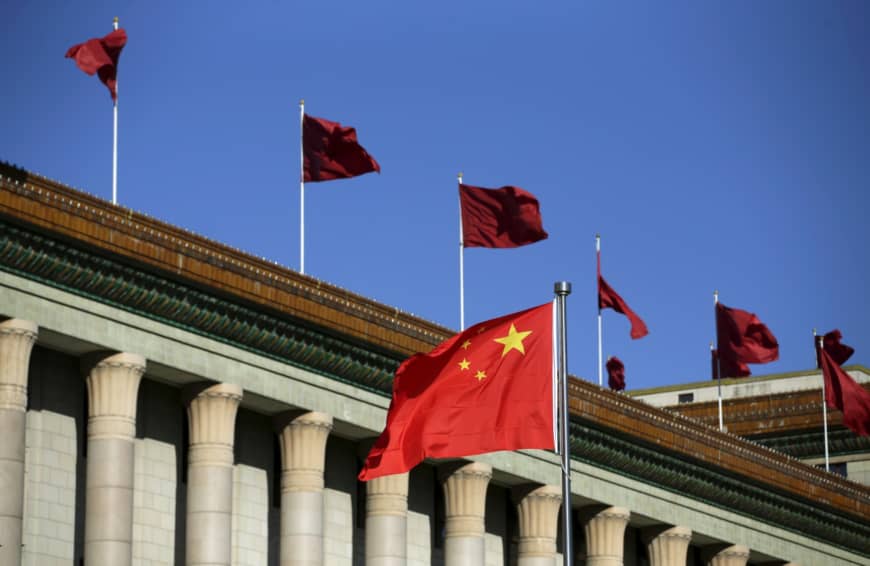BEIJING – Japanese public impressions of China remain “unfavorable,” an annual survey showed Thursday, amid a lingering territorial dispute, a U.S.-China trade war and unrest in Hong Kong.
The survey, conducted by the Japanese nonprofit think tank Genron NPO and the China International Publishing Group, found that 84.7 percent of Japanese respondents have an “unfavorable” impression of China, down 1.6 percentage points from a year earlier.
The survey was conducted amid a recent thaw in Sino-Japanese ties that had previously grown frosty over wartime history and territory.
The Asian neighbors say that bilateral relations have returned to a “normal track,” and the two sides are preparing for Chinese President Xi Jinping’s first state visit to Japan next spring.
But that contrasts with the opinion of the Japanese public, with a 5.8 percentage point increase to 44.8 percent among those who believe the current status of bilateral ties is “bad” or “relatively bad,” with a “lack of trust between governments” cited as one of the primary reasons.
Yasushi Kudo, the head of the think tank, explained that “although the Japanese government has begun to strengthen relations with China and began exchanges with its leaders, the purpose and future vision of this has not been explained to the Japanese people.”
Furthermore, Japanese news outlets, from where the majority of the respondents said that they receive information about China, “aired discussions of economic conflict between the United States and China and violent images of anti-Beijing protests in Hong Kong on a daily basis” during the surveying month of September, Kudo wrote in an analysis.
Despite the two governments’ pledges to make efforts to build a “new era” in Sino-Japanese ties, the survey results indicate that the Japanese public’s impressions of China have been negatively influenced by those major issues.
Since June there have been protests almost every weekend in Hong Kong, many turning violent, which were initially triggered by a now-withdrawn extradition bill that would have allowed Hong Kong citizens to be sent to mainland China for trial.
Indeed, there was a noticeable rise in those who cited China’s “one-party rule by the Communist Party” and “entrenched nationalism of the Chinese people” as a reason for their “unfavorable” impression of the country, amounting to 43 percent and 8.3 percent of respondents respectively.
While “continuing territorial issues over the Senkaku Islands and Japanese water/airspace” remained the most cited reason, 12.2 percent named China’s “incomprehensible response to the China-U.S. trade war” as a reason for an “unfavorable” impression.
In contrast, “favorable” Chinese public impressions of Japan were at their highest level since the joint survey began in 2005. Chinese respondents of that view rose to 45.9 percent, nearly 40 points higher than in 2013 when the two governments came to loggerheads over the Senkaku Islands, administered by Japan but claimed by China.
Kudo believes a rapid rise in the number of Chinese citizens traveling to Japan, as well as increased use of social media services, are major factors for the improvement.
The survey found that the majority of Chinese respondents who have traveled to Japan had a “favorable” impression of the country, whereas the majority of those who had not been to Japan had an “unfavorable” impression.
The survey was conducted in September and valid responses were collected from 1,000 people in Japan and 1,597 in China age 18 or older.
(Agencies)









Comment